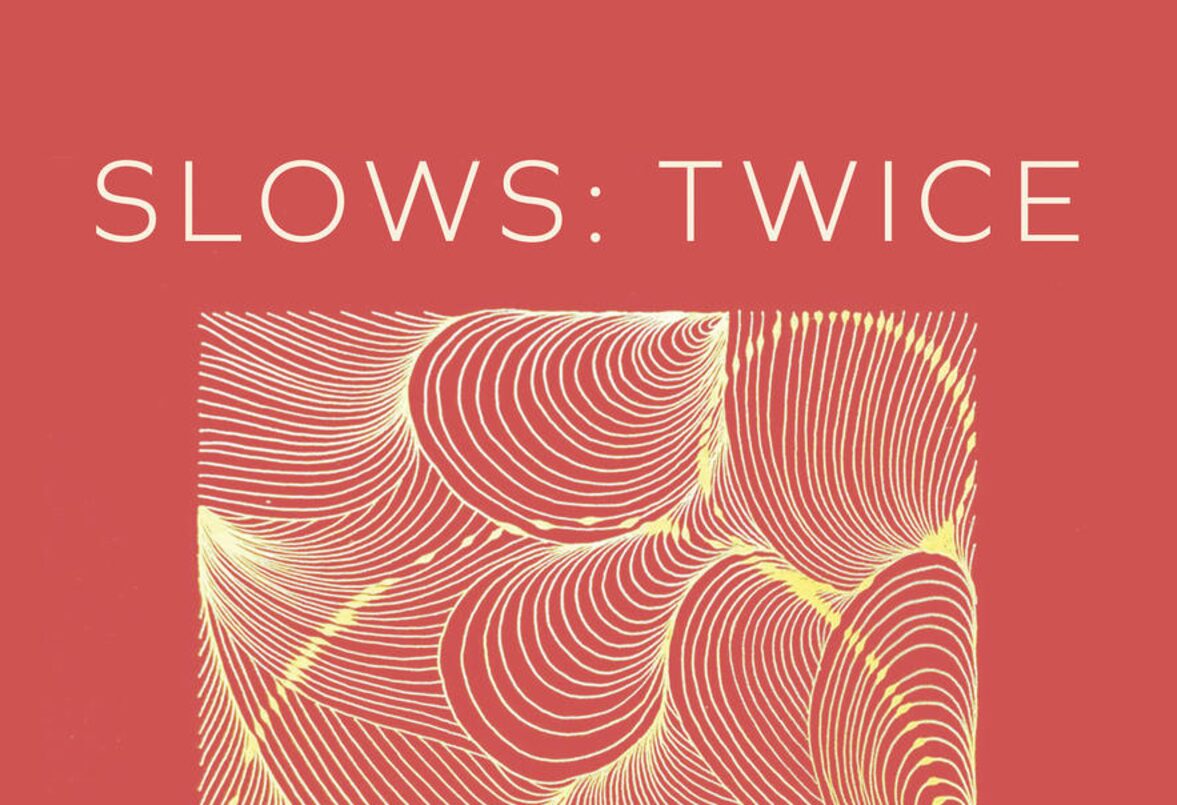
Slows: Twice
T. Liem
Couch House Books, 2023
Review by Bridget Huh
T. Liem’s second poetry collection Slows: Twice asks us to inhabit a world of doubles where everything must be approached slowly, with extraordinary care, lest it shimmer into a mirage, a trick of the light. The book is divided into two halves: each poem in the first half corresponds to another, alternate version in the second half, which has revised or somehow transformed its former self.
I had the unique pleasure of hearing Liem read at Coach House’s Spring Launch in Toronto, where they read “We Were Captioned Not Captured” and “We Were the Grateful Ones,” a pair of poems that recount various selves with an arresting attention to detail. In both, time is fluid, expanding and contracting as a tide. Liem’s lines, dense and weighty in some places, expansive and generous in others, ask the reader to take their time—to take the time that the poem offers them. “Let me give you a minute,” they write. “Let me give. / Let piss be a lens for light.” These poems give us small moments of beauty, slowed and magnified into “a year / in which years shimmer / relief through our bodies.”
While some pairs of poems yield their likenesses easily, others are more opaque. Some, like the aforementioned pair, reshape one another from the bottom up—as though the first poem were shattered, its fragments reassembled in a startling new order, an unfamiliar face peering out of what was once a reflection. Others, like “Slow Mirror” and its pair, are literal reflections of one another across the spine of the book, two sides of the same whole.
The paired poems “There Are No Actual Monsters In This Poem I Hope” and “There Are No Actual Poets In This Poem I Hope” are both, as many poems in the collection are, love poems offering a means of approaching the inarticulable. These poems are constantly reinterpreting moments of beauty, thus making them anew. In the first poem, to bike down a hill is to be “thrilled by the laws of gravity / pulling us”; a kiss is cited as “the first sign / of something that might burst open / if never spoken.” But at the same time, for the speaker, to tell again, to reinterpret, is also necessarily to revise. They ask: “Have you ever picked at your past until / it’s all drip and shine?”
The poem’s reflection, “There Are No Actual Poets In This Poem I Hope,” both clarifies and complicates. Now, the speaker is the poem, or perhaps the poem speaks for itself, declaring “I am you made of wax / We are two of a kind.” “You” and “I” exemplify the intimate hold of address between one poem and its mirrored pair, a relation in which the latter might implore, “Revise me as the poem of belated apology / lifting and lilting some unsaid / you.”
My favourite pair of poems, “Only Once In This Life Were You The Bur Oak” and “You Were Not One Time In Your Life,” are prose poems that imagine wholly different ways of being. They enact a slow transformation of “you” through sentences that steadily accumulate like tree rings. The speaker in the first poem wants to be the bur oak, which is to say they want to be other than they are, living such that time would leave no trace in them but rings. Where the events in the speaker’s life are marked by uncertainty, “[T]here might be a clothesline,” or “There might be a question you remember to ask your mother,” or “You might get to jump into the cold water,” the bur oak is, by contrast, the pinnacle of surety, “always standing.”
The poem’s pair, however, “You Were Not Once In Your Life,” leans into this uncertainty, where the speaker is not narrating but constantly questioning: “But do you think under everything like a rot? Were you a sun engorged by green? And how did time reason inside?” It answers the previous poem’s hesitation with its own alternative mode of engagement, taking nothing as given and questioning even the most obvious principles of the world. Though the last line of the poem ends in a period, as though answering all of the previous questions, it offers no more resolution than those unanswerable questions: “What seems obvious is hoping, full volume, to be waved forward, to be waves.”
Poetry is a medium that rewards slowness and careful attention. Any reader returning the inexhaustible care T. Liem has poured into this book is sure to find a reason to slow down, to look again with renewed wonder.
Bridget Huh is a queer Korean poet completing her undergraduate studies at Concordia University. Her poetry and criticism have appeared in or are forthcoming in Arc Poetry Magazine, The Ex-Puritan, and Canthius.